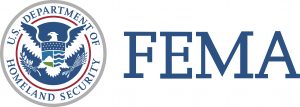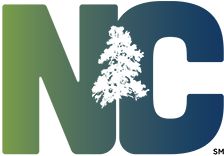
Before survivors receive their grants, they must sign a declaration and a release certifying that all funds will be spent on the expenses for which they are intended.
These grants are for repairs, temporary housing and other approved essential disaster-related costs. Survivors who have questions about their grants should call FEMA’s Helpline at 800-621-3362.
Housing funds may be used for:
FEMA grants cannot duplicate payments from other sources. For example, if a grant recipient receives an insurance settlement covering expenses already paid for by FEMA, those duplicated funds must be returned to FEMA.
Survivors are encouraged to keep their information updated by logging into their account:
For more information on the North Carolina recovery, visit readync.org and fema.gov/disaster/4285. Follow FEMA on Twitter at @femaregion4 and North Carolina Emergency Management at @ncemergency.

With the start of a new month you may wonder if the disaster assistance you received from the Federal Emergency Management Agency (FEMA) will reduce your Social Security checks or other benefits, or raise your income tax bill.
No need to worry! Federal disaster assistance does not count as income. Social Security payments or Medicare benefits are not affected by disaster relief payments from the government or donations from charitable organizations. And, disaster recovery grants will not affect anyone’s eligibility for welfare assistance, Medicaid, food stamps or Aid to Families with Dependent Children. Grants for disaster recovery assistance are not counted as income in determining eligibility for any income-tested benefit program that the U.S. government funds.
Likewise, eligibility for FEMA assistance is not dependent on income. The amount of disaster assistance an eligible applicant receives is based on the amount of loss and damage incurred as a direct result of the storms and floods from Hurricane Matthew.

In an effort to provide relief to residents impacted by Hurricane Matthew, Governor Pat McCrory has directed the Division of Motor Vehicles to temporarily waive certain fees for customers in counties affected by Hurricane Matthew.
“We are committed to offering every assistance possible to those impacted by Hurricane Matthew so that families can return to their homes, schools, businesses and normal way of life,” said Governor McCrory. “Waiving these fees will help build on our efforts to support those affected.”
The action applies to the following counties: Beaufort, Bertie, Bladen, Brunswick, Camden, Carteret, Chowan, Columbus, Craven, Cumberland, Currituck, Dare, Duplin, Edgecombe, Gates, Greene, Harnett, Hoke, Hyde, Johnston, Jones, Lee, Lenoir, Martin, Moore, Nash, New Hanover, Onslow, Pamlico, Pasquotank, Pender, Perquimans, Pitt, Robeson, Sampson, Tyrrell, Wake, Washington, Wayne and Wilson.
While motor vehicle property taxes will still be due during an annual registration renewal, DMV will waive the following fees in the above-listed counties until Dec. 1, 2016:
License/ID Card Fees:
Vehicle Fees:

Disaster survivors who suffered damage or loss from Hurricane Matthew and were referred to the U.S. Small Business Administration could lose some income-based FEMA grants if they don’t complete and submit SBA’s loan application.
FEMA’s Other Needs Assistance grants may cover uninsured losses for furniture, appliances and other essential personal property, even vehicles. Survivors will not be considered for this type of assistance unless they complete and return the SBA loan application. The information on the application is used to determine eligibility for income-based assistance.
Disaster survivors are encouraged to register with FEMA and, if referred, complete and submit an SBA loan application, even if they don’t want a loan. The application is used to check eligibility for additional grants.
SBA is the federal government’s primary source of money for the long-term rebuilding of disaster-damaged private property. The SBA offers low-interest disaster loans to businesses, private nonprofit organizations, homeowners and renters.
Survivors should start the loan process as soon as possible, and those who qualify for an SBA loan are under no obligation to accept it. If approved and the loan is not accepted, the survivor may be ineligible for additional federal assistance.
Submit an SBA loan application even if you are waiting for an insurance settlement. Survivors do not have to wait for an insurance settlement. A survivor’s insurance policy may not cover all the replacement, repair and rebuilding costs. A disaster loan is available to cover the difference.
To repair or help rebuild a primary residence, a homeowner may borrow up to $200,000 from SBA. Homeowners and renters may borrow up to $40,000 from SBA to replace personal property.
Businesses may borrow up to $2 million for any combination of property damage or economic injury. SBA offers low-interest working capital loans (called Economic Injury Disaster Loans) to small businesses and most private nonprofit organizations of all sizes having difficulty meeting obligations as a result of the disaster.
###

The U.S. Small Business Administration (SBA) plays a unique role in helping all disaster survivors recover.
If you are a Hurricane Matthew disaster survivor who lives in one of the 35 North Carolina counties designated for individual assistance and has applied for help with FEMA, you may be referred to the SBA. If you receive a loan application, it is important to submit it as soon as possible. This will ensure that the federal disaster recovery process continues and you keep your options open. If you receive a loan application, even if you do not believe you need a loan, you should submit the application. If SBA determines you are eligible for a loan, you do not have to accept it.
Next to insurance, an SBA low-interest disaster loan is the primary source of funds for real estate property repairs and for replacing contents destroyed in the recent flooding. The SBA provides low-interest loans to homeowners, renters and businesses of all sizes.
SBA Business Recovery Centers (BRCs) are a resource where you can meet face-to-face with SBA representatives to learn how a low-interest disaster loan can help you recover. The centers are located at:
To be considered for all forms of disaster assistance:
For more information on the North Carolina recovery, visit the disaster webpage at fema.gov/disaster/4285, or visit the North Carolina Emergency Management website at ncdps.gov. Follow FEMA on Twitter at @femaregion4 or North Carolina Emergency Management @ncemergency.
###
Disaster recovery assistance is available without regard to race, color, religion, nationality, sex, age, disability, English proficiency or economic status. If you or someone you know has been discriminated against, call FEMA toll-free at 800-621-3362 or TTY at 800-462-7585.
FEMA’s mission is to support our citizens and first responders to ensure that as a nation we work together to build, sustain, and improve our capability to prepare for, protect against, respond to, recover from, and mitigate all hazards. Follow FEMA on twitter at@femaregion4. Download the FEMA app with tools and tips to keep you safe before, during, and after disasters.
Dial 2-1-1 or 888-892-1162 to speak with a trained call specialist about questions you have regarding Hurricane Matthew; the service is free, confidential and available in any language. They can help direct you to resources. Call 5-1-1 or 877-511-4662 for the latest road conditions or check the ReadyNC mobile app, which also has real-time shelter and evacuation information. For updates on Hurricane Matthew impacts and relief efforts, go to ReadyNC.org or follow N.C. Emergency Management on Twitter and Facebook. People or organizations that want to help ensure North Carolina recovers can visit NCdisasterrelief.org or text NCRecovers to 30306.
The U.S. Small Business Administration (SBA) is the federal government’s primary source of money for the long-term rebuilding of disaster-damaged private property. SBA helps homeowners, renters, businesses of all sizes, and private non-profit organizations fund repairs or rebuilding efforts and cover the cost of replacing lost or disaster-damaged personal property.
These disaster loans cover losses not fully compensated by insurance or other recoveries and do not duplicate benefits of other agencies or organizations. For more information, applicants may contact SBA’s Customer Service Center by calling 800-659-2955, emailingdisastercustomerservice@sba.gov, or visiting SBA’s Web site at www.sba.gov/disaster. Deaf and hard-of-hearing individuals may call 800-877-8339.
Renters Are Eligible for Disaster Assistance

With so much attention given to businesses and homeowners, survivors who are renters may think they are not eligible for disaster assistance even though they suffered losses from the storms and floods spawned by Hurricane Matthew. But they are.
Like homeowners, renters must first register with the Federal Emergency Management Agency (FEMA):
Registering with FEMA is the first step toward qualifying for disaster assistance, which may include grants to help renters and homeowners pay for temporary housing, personal property replacements and other serious disaster-related needs not covered by insurance.
After registering with FEMA, renters may also be eligible for low-interest loans from the U.S. Small Business Administration (SBA). SBA offers such loans to businesses of all sizes, private non-profit organizations, and homeowners as well as renters. SBA loans to renters may cover the cost of repairing or replacing lost or disaster-damaged personal property.
For more information on SBA loans, call SBA’s Disaster Assistance Customer Service Center at 800 659-2955 or 800 877-8339for TTY; email disastercustomerservice@sba.gov or visit http://www.sba.gov/disaster. Applicants may also apply online at https://disasterloan.sba.gov/ela for the Electronic Loan Application on SBA’s secure website.
###
All FEMA disaster assistance will be provided without discrimination on the grounds of race, color, sex (including sexual harassment), religion, national origin, age, disability, limited English proficiency, economic status, or retaliation. If you believe your civil rights are being violated, call 800-621-3362 or 800-462-7585(TTY/TDD).
You can receive weather alerts, safety tips and learn about disaster resources by downloading the free FEMA App, available for Apple, Android, and Blackberry mobile devices. Visit fema.gov/mobile-app for more information.
FEMA’s mission is to support our citizens and first responders to ensure that as a nation we work together to build, sustain, and improve our capability to prepare for, protect against, respond to, recover from, and mitigate all hazards. Follow us on Twitter at https://twitter.com/femaregion4 and the FEMA Blog at http://blog.fema.gov.
The SBA is the federal government’s primary source of money for the long-term rebuilding of disaster- damaged private property. SBA helps businesses of all sizes, private non-profit organizations, homeowners and renters fund repairs or rebuilding efforts and cover the cost of replacing lost or disaster-damaged personal property. These disaster loans cover losses not fully compensated by insurance or other recoveries and do not duplicate benefits of other agencies or organizations. For more information, applicants may contact SBA’s Disaster Assistance Customer Service Center by calling 800-659-2955, emailing disastercustomerservice@sba.gov, or visiting SBA’s website at www.sba.gov/disaster. Deaf and hard-of-hearing individuals may call 800-877-8339.